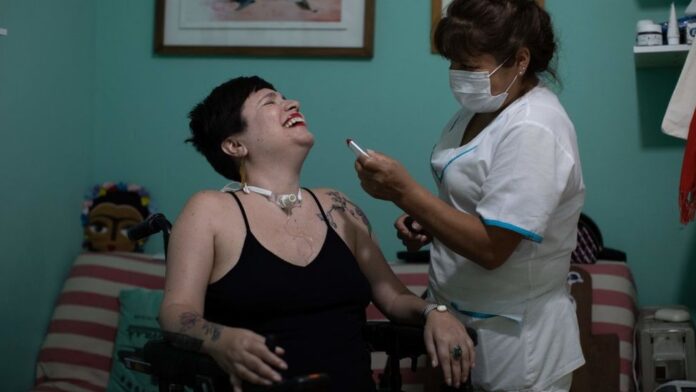Peruvian Psychologist Becomes First Person in Peru to Die by Euthanasia After Fighting in Court for Years
A Peruvian psychologist, Ana Estrada, who suffered from an incurable disease that progressively weakened her muscles and left her bedridden for several years, has died by euthanasia. This landmark event makes her the first person in Peru to obtain the right to die with medical assistance. Estrada’s lawyer announced her passing on Monday, highlighting her long and arduous battle in the Peruvian courts for the right to die with dignity.
Euthanasia and assisted suicide are illegal in Peru, making Estrada’s fight even more challenging. However, in 2022, she was granted an exception by the nation’s supreme court. The court upheld a ruling by a lower court, affirming Estrada’s right to decide when to end her life and ensuring that those who assisted her would not face punishment. This legal victory marked a significant milestone for the right-to-die movement in Peru.
A Symbol of Courage and Advocacy
Ana Estrada’s struggle for her right to die with dignity has not only made her a celebrity in Peru but has also helped educate thousands of Peruvians about this fundamental right. Her lawyer, Josefina Miró Quesada, stated, “Her struggle transcended our nation’s borders,” emphasizing the impact Estrada’s case has had on raising awareness and sparking conversations about end-of-life choices.
Estrada, who was 47 years old, suffered from a debilitating condition called polymyositis, which progressively deteriorated her muscle function. She first experienced symptoms as a teenager and eventually became reliant on a wheelchair by the age of 20. Despite her physical limitations, Estrada pursued a psychology degree and became a therapist, achieving independence from her parents by purchasing her own apartment.
However, in 2017, Estrada’s condition worsened, rendering her unable to leave her bed. She faced difficulties breathing and even survived pneumonia. Despite her physical limitations, Estrada used transcription software to maintain a blog titled “Ana for a Death with Dignity.” Through this platform, she shared her struggles and discussed her decision to seek euthanasia.
Estrada’s Experience and Advocacy
In a 2018 interview with the Associated Press, Estrada expressed her profound sense of loss and confinement, stating, “I am no longer free. I am not the same person I was before.” Determined to assert her autonomy and have the freedom to decide when to end her life, Estrada embarked on a legal battle with the support of Peru’s human rights ombudsman.
Despite her physical limitations, Estrada actively participated in court sessions through video conferences, making her case from her bed. In 2022, she addressed the judges, emphasizing her appreciation for life but asserting her desire to access euthanasia when her suffering became unbearable. She wished to bid farewell to her loved ones in peace and tranquility.
A Global Perspective on Euthanasia
Euthanasia remains a contentious and heavily debated topic worldwide. Only a handful of countries, including Canada, Belgium, and Spain, have legalized euthanasia. In some parts of the United States, such as Maine and Oregon, physician-assisted suicide is permitted, enabling terminally ill patients to end their lives with medical assistance.
In Latin America, euthanasia is illegal in most countries. However, Colombia legalized euthanasia in 2015, and Ecuador decriminalized the practice in February of this year. Ana Estrada’s case in Peru has undoubtedly sparked conversations about the right to die with dignity and may serve as a catalyst for further discussions and potential legal reforms in the region.
Ana Estrada’s legacy as a courageous advocate for the right to die with dignity will continue to inspire and shape conversations surrounding end-of-life choices. Her determination and resilience have shed light on the importance of respecting individual autonomy and the need for compassionate and comprehensive discussions on this complex issue.

